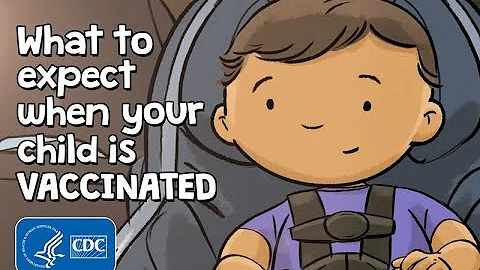Babies are generally vaccinated after birth, which can prevent various diseases. There are also certain requirements for children's vaccination, especially age and vaccination time. The vaccination time of different vaccines is different. This vaccination must be carried out strictly according to the relevant time, and relevant documents must be brought when vaccination.

Children’s vaccination age groups in 2022
my country divides children’s vaccines into two categories. Category 1 vaccines are provided by the government to citizens for free, and category 2 vaccines are other vaccines that citizens pay for themselves and are voluntarily vaccinated with knowledge. Currently, children of school age in my country can be vaccinated for free. There are 11 first-class vaccines, and more vaccines are being included in the free scope. At present, there are a variety of free vaccines in our country that can prevent hepatitis B, tuberculosis , polio, etc. There are also many self-funded vaccines that can prevent measles, mumps, Japanese encephalitis, etc. Each children's vaccine may have more than one shot, and it requires Vaccination on time, otherwise the vaccine will not have the desired effect after vaccination. The following is the self-paid and free children's vaccination schedule for babies before 6 years old:
Children's vaccination time:
Birth: Hepatitis B vaccine First shot, BCG vaccine;
1 Monthly age: second shot of hepatitis B vaccine;
2-month-old: first shot of inactivated polio vaccine;
3-month-old: second shot of inactivated polio vaccine, first shot of 100-day vaccine;
4-month old: 100-day vaccine Second shot of vaccine, three shots of live attenuated polio vaccine;
5 months old: third shot of 100-day broken vaccine;
6 months old: first shot of group A meningococcal polysaccharide vaccine;
8 months old: measles, mumps vaccine The first shot, the first shot of live attenuated Japanese encephalitis vaccine, the first and second shot of inactivated Japanese encephalitis vaccine;
9 months old: the second shot of group A meningococcal polysaccharide vaccine;
18 months old: the first shot of 100-day broken vaccine Four shots, second shot of MMR vaccine, first shot of live attenuated hepatitis A vaccine and inactivated hepatitis A vaccine;
2 years old: second shot of live attenuated Japanese encephalitis vaccine, third shot of inactivated Japanese encephalitis vaccine, inactivated hepatitis A vaccine The second shot of live vaccine;
3 years old: the third shot of group A meningococcal polysaccharide vaccine;
4 years old: the fourth shot of live attenuated polio vaccine;
6 years old: 5 shots of full diphtheria-tetanus vaccine, Japanese encephalitis inactivated The fourth shot of vaccine, the fourth shot of group A meningococcal polysaccharide vaccine.
Tips:
Since the implementation of the immunization program in 1978, through vaccination of various children, it has been confirmed by the World Health Organization (WHO) in 2000 to be free of poliomyelitis, and children with measles, whooping cough , diphtheria The incidence and mortality rates of diseases such as , , tetanus, and other diseases have also dropped to historical lows.

What documents do children need to bring for vaccination?
When your baby gets vaccinated, you only need to provide the vaccination certificate or vaccination manual.
The vaccination manual contains the order of vaccination and the corresponding vaccines. However, for some babies, if it is their first time to go to the community to get vaccinated, then they need to provide the baby's birth certificate and also bring it with them. When you are in the hospital, the doctor will give you the injection voucher for hepatitis B vaccine and BCG vaccine, as well as the baby's household registration book. Go to the community where you are to apply for the vaccination certificate. Under normal circumstances, my country's vaccines are divided into Category I vaccines and Category II vaccines. Category I vaccines are free vaccines, and Category II vaccines are self-paid vaccines.

Precautions for children's vaccination
Precautions for vaccination include the following points:
1. Whether there is fever: the body temperature should be measured before vaccination. If the body temperature exceeds the normal value, vaccination should be avoided at this time to avoid aggravation of fever;
2. Whether there is a disease: For example, if you suffer from convulsions, epilepsy and other diseases, if it is not well controlled, vaccination is not recommended at this time;
3. Whether there is an allergy: If there is an allergy, it is also recommended not to vaccinate at this time, which may easily aggravate the allergy. ;
4. Whether there is medication: If there is medication, such as using immunosuppressant , try not to vaccinate immediately;
5. Pay attention to observation: After vaccination, the child should be observed for about half an hour to make sure the vaccine is given. Whether there is a rash or changes in breathing or heart rate later, determine whether there is an allergic reaction;
6. Pay attention to daily care: After vaccination, you should drink plenty of warm water, pay attention to rest, eat as light a diet as possible, and take careful care for 1-2 days before vaccination. The site should avoid contact with water, which may easily lead to local infection at the vaccination site;
7. See a doctor in time: If a serious vaccine reaction occurs, you should go to the hospital in time for targeted treatment.





















